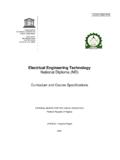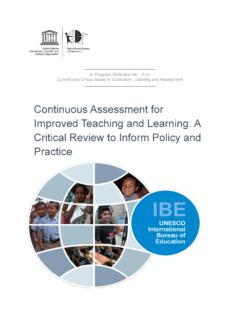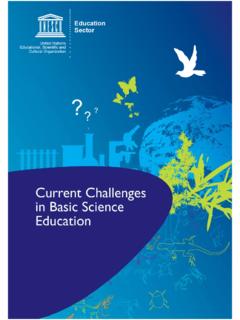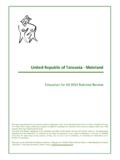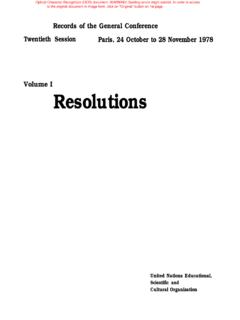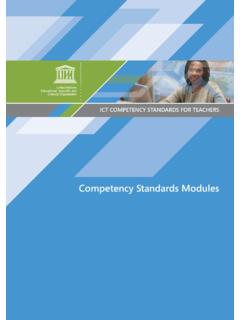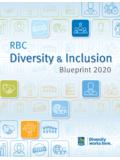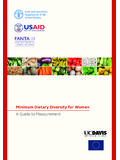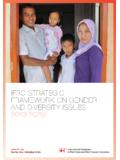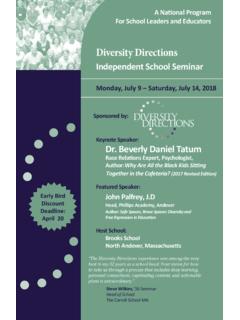Transcription of Convention on the Protection and Promotion of the ...
1 1 Convention on the Protection andPromotion of theDiversity ofCulturalExpressions Paris, 20 October 2005 The General Conference of the United Nations Educational, Scientific and Cultural Organization, meeting in Paris from 3 to 21 October 2005 at its 33rd session,Affirming that cultural diversity is a defining characteristic of humanity, Conscious that cultural diversity forms a common heritage of humanity and should be cherished and preserved for the benefit of all, Being aware that cultural diversity creates a rich and varied world, which increases the range of choices and nurtures human capacities and values, and therefore is a mainspring for sustainable development for communities, peoples and nations,Recalling that cultural diversity , flourishing within a framework of democracy, tolerance.
2 Social justice and mutual respect between peoples and cultures, is indispensable for peace and security at the local, national and international levels, Celebrating the importance of cultural diversity for the full realization of human rights and fundamental freedoms proclaimed in the Universal Declaration of Human Rights and other universally recognized instruments,Emphasizing the need to incorporate culture as a strategic element in national and international development policies, as well as in international development cooperation, taking into account also the United Nations Millennium Declaration (2000)
3 With its special emphasis on poverty eradication, Taking into account that culture takes diverse forms across time and space and that this diversity is embodied in the uniqueness and plurality of the identities and cultural expressions of the peoples and societies making up humanity, Recognizing the importance of traditional knowledge as a source of intangible and material wealth, and in particular the knowledge systems of indigenous peoples, and its positive contribution to sustainable development, as well as the need for its adequate Protection and Promotion ,Recognizing the need to take measures to protect the diversity of cultural expressions, including their contents, especially in situations where cultural expressions may be threatened by the possibility of extinction or serious impairment, Emphasizing the importance of culture for social cohesion in general, and in particular its potential for the enhancement of the status and role of women in society.
4 Being aware that cultural diversity is strengthened by the free flow of ideas, and that it is nurtured by constant exchanges and interaction between cultures, Reaffirming that freedom of thought, expression and information, as well as diversity of the media, enable cultural expressions to flourish within societies, Recognizing that the diversity of cultural expressions, including traditional cultural expressions, is an important factor that allows individuals and peoples to express and to share with others their ideas and values, Recalling that linguistic diversity is a fundamental element of cultural diversity , and reaffirming the fundamental role that education plays in the Protection and Promotion of cultural expressions, Taking into account the importance of the vitality of cultures, including for persons belonging to minorities and indigenous peoples, as manifested in their freedom to create, disseminate and distribute their traditional cultural expressions and to have access thereto, so as to benefit them for their own development.
5 Emphasizing the vital role of cultural interaction and creativity, which nurture and renew cultural expressions and enhance the role played by those involved in the development of culture for the progress of society at large, Recognizing the importance of intellectual property rights in sustaining those involved in cultural creativity, Being convinced that cultural activities, goods and services have both an economic and a cultural nature, because they convey identities, values and meanings, and must therefore not be treated as solely having commercial value,Noting that while the processes of globalization, which have been facilitated by the rapid development of information and communication technologies, afford unprecedented conditions for enhanced interaction between cultures, they also represent a challenge for cultural diversity , namely in view of risks of imbalances between rich and poor countries.
6 Being aware of UNESCO s specific mandate to ensure respect for the diversity of cultures and to recommend such international agreements as may be necessary to promote the free flow of ideas by word and image, Referring to the provisions of the international instruments adopted by UNESCO relating to cultural diversity and the exercise of cultural rights, and in particular the Universal Declaration on Cultural diversity of 2001, Adopts this Convention on 20 October Objectives and guiding principlesArticle 1 OBJECTIVES The objectives of this Convention are:(a) to protect and promote the diversity of cultural expressions; (b) to create the conditions for cultures to flourish and to freely interact in a mutually beneficial manner; (c) to encourage dialogue among cultures with a view to ensuring wider and balanced cultural exchanges in the world in favour of intercultural respect and a culture of peace.
7 (d) to foster interculturality in order to develop cultural interaction in the spirit of building bridges among peoples; (e) to promote respect for the diversity of cultural expressions and raise awareness of its value at the local, national and international levels; (f) to reaffirm the importance of the link between culture and development for all countries, particularly for developing countries, and to support actions undertaken nationally and internationally to secure recognition of the true value of this link;(g) to give recognition to the distinctive nature of cultural activities, goods and services as vehicles of identity, values and meaning.
8 (h) to reaffirm the sovereign rights of States to maintain, adopt and implement policies and measures that they deem appropriate for the Protection and Promotion of the diversity of cultural expressions on their territory; (i) to strengthen international cooperation and solidarity in a spirit of partnership with a view, in particular, to enhancing the capacities of developing countries in order to protect and promote the diversity of cultural expressions. Article 2 GUIDING PRINCIPLES1. Principle of respect for human rights and fundamental freedomsCultural diversity can be protected and promoted only if human rights and fundamental freedoms, such as freedom of expression, information and communication, as well as the ability of individuals to choose cultural expressions, are guaranteed.
9 No one may invoke the provisions of this Convention in order to infringe human rights and fundamental freedoms as enshrined in the Universal Declaration of Human Rights or guaranteed by international law, or to limit the scope Principle of sovereigntyStates have, in accordance with the Charter of the United Nations and the principles of international law, the sovereign right to adopt measures and policies to protect and promote the diversity of cultural expressions within their territory. 3. Principle of equal dignity of and respect for all culturesThe Protection and Promotion of the diversity of cultural expressions presuppose the recognition of equal dignity of and respect for all cultures, including the cultures of persons belonging to minorities and indigenous Principle of international solidarity and cooperationInternational cooperation and solidarity should be aimed at enabling countries, especially developing countr
